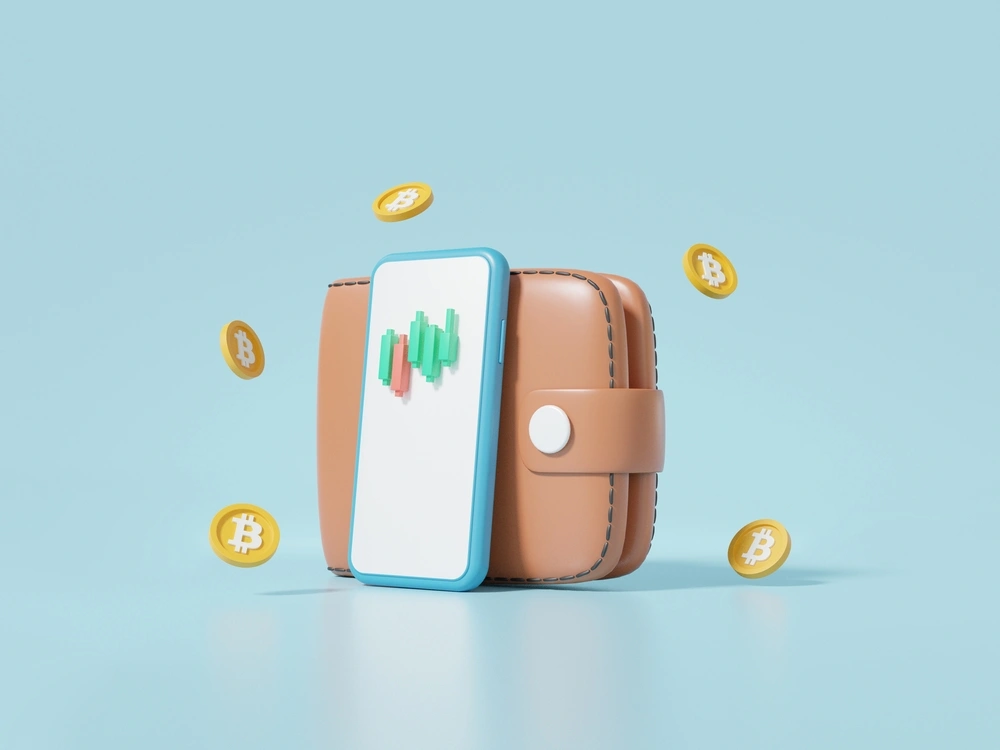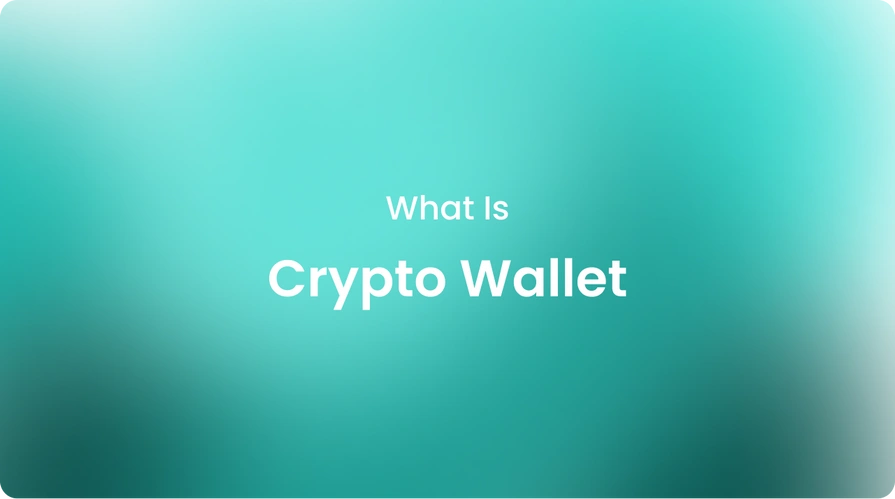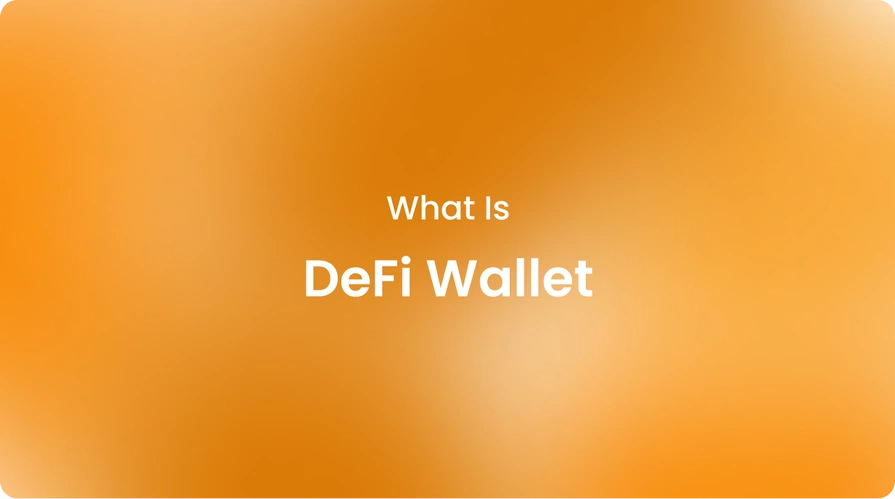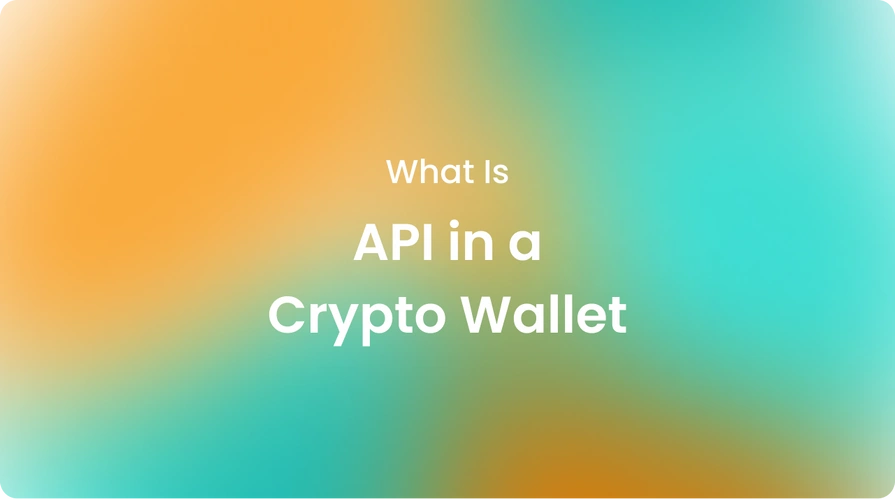|crypto, knowledgehub
How Do You Set Up a Cryptocurrency Wallet?

As cryptocurrency grows in popularity, more and more people are looking to get involved in the exciting world of digital assets, and you may wonder how to set up a cryptocurrency wallet to secure your crypto assets.
In this article, we'll cover the basics of crypto wallets—what they are, the different types available, and how to choose the right one for your needs. By the end, you will understand these essential tools and feel confident enough to join the crypto ecosystem.
Put simply, a cryptocurrency wallet is a software program that stores both public and private keys and allows users to interact with various blockchain networks. All cryptocurrency transactions require a private key to digitally “sign” transfers of currency between addresses.
Crypto wallets manage these keys and enable users to send and receive digital currency on supported blockchains. They also often provide additional features like the ability to view your balance, transaction history, and, in some cases, convert between different coins and tokens.
There are two key parts to every cryptocurrency wallet: the public address, which acts like your receiving account number, and the private keys that unlock coins associated with that address and allow spending.
Wallets secure these private keys and help users manage the complex key pairs behind the scenes. Without a private key, the funds associated with a public address become unspendable, so security is crucial. Let’s continue with the main types of them!
What are the types of crypto wallets?
Now that we understand the basics, let's dive deeper into the different types of crypto wallets available.
There are a few main categories worth considering:
Software wallets
Also known as hot wallets, desktop wallets, or mobile wallets, software wallets store your private keys electronically, either on your device or in the cloud with internet access.
They include options like individual apps you can download as well as integrations into existing products like web browsers. Software wallets tend to offer a variety of features and customization options at the cost of storing private keys digitally on a networked device.
Hardware wallets
Hardware wallets (a.k.a. cold walletsdue to no internet connection) like Ledger are self-contained physical devices that keep your private keys stored securely offline on a detachable chip. They only connect to an online device, like a computer or mobile device, when needed to approve transactions.
Because private keys never touch an internet-connected machine, hardware wallets are among the most secure options. However, they do require an upfront cost and are not as easy to set up for beginners. You can check out “How to store stablecoins on the Ledger?” for more details.
Centralized exchange wallets
Keeping your crypto coins or crypto tokens on centralized exchanges provides quick access for crypto trading but puts custody of your private keys in the hands of a third party. These crypto wallets hold many crypto coins in one spot, but they take away users' direct control.
However, if a cryptocurrency exchange is hacked or goes out of business, this level of convenience does come with some risks. Your money is only as safe as the exchange holds it to be.
Paper wallets
Traditional paper wallets print your public and private key pairs onto a physical sheet and allow for "cold storage" without an internet connection.
Paper wallets can provide good protection as long as you properly secure the backup from theft or damage, but they are inconvenient to use and not ideal for frequent transactions.
How do crypto wallets work?
Now that we've reviewed the types of crypto wallets, let's break down how the fundamental functions work across all variants. As mentioned earlier, when setting up a wallet, it will generate a random public-private key pair.
Others can send funds to you using your public address, which is derived from the public key. The private key, on the other hand, proves ownership of any coins associated with your public address.
When you want to send currency, the wallet encrypts and digitally signs the transaction with your private key before broadcasting it to the blockchain network for verification. This verification process secures the network by ensuring only the true owner of a given private key can spend funds.
Meanwhile, crypto wallets also let you view your transaction and balance history. They enable you to easily view the open activity associated with your address. Additionally, some software and exchange wallets will connect to outside services to let you convert between different digital assets.
Which crypto wallet should I choose?
With so many options, deciding the best crypto wallet depends on your individual needs and risk tolerance. As a general rule, if you only plan to hold smaller amounts of currency and value quick access, an exchange wallet may meet your needs well.
But if you want complete control or plan to store larger sums long-term, using a software or hardware wallet for their additional security features makes sense.
One way to determine the security level that matches your needs is to look at how much you intend to keep in your wallet. Those holding less than $500, for instance, may feel comfortable with a phone app, while having over $5,000 is when a hardware wallet becomes a smarter choice.
No matter the solution, always make sure to enable two-factor authentication, set strong passwords, and only download software from trusted publisher sites. Cryptobunq is a crypto-friendly digital bank offering various services in crypto and blockchain, including custody and wallet solutions.
Cryptobunq offers crypto wallets, API in a crypto wallet, DeFi wallets, centralized and decentralized storage system solutions, and many more. CBQ is a one-stop-shop crypto service provider. You can integrate with Cryptobunq and start using the benefits of cryptocurrency and blockchain.
The bottom line
As the digital asset ecosystem expands rapidly, crypto wallets and the chosen crypto coin are key entry points. By understanding the fundamentals and conducting research to select the type that aligns with your specific goals, you will gain confidence when getting started.
Whether diving into cryptocurrency for the first time or looking to expand participation, wallets help facilitate activity on the blockchain technology while properly securing private information.
Once armed with this foundation, you'll be all set to begin exploring the innovative world of digital currency. Even those new to the space should now feel more empowered to engage with cryptocurrency or stablecoins through a strong understanding of how wallets enable real-world use.
EURK is a securely audited euro stablecoin that has reserves in Switzerland and the Dominican Republic. EURK stablecoin offers transparent transactions that are fast and secure. Cryptobunq, a secure crypto service company, securely issues and audits EURK.
For those with further interest, Cryptobunq offers diverse crypto services, from checkout and invoicing to euro stablecoin wallet solutions. You can rely on CBQ solutions for your individual and business projects. Contact us and dive into expert crypto solutions powered by blockchain with Cryptobunq!













